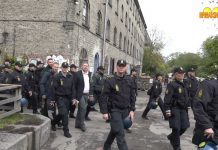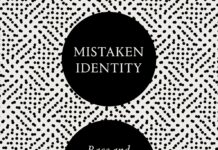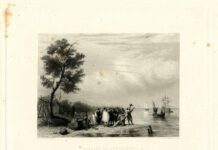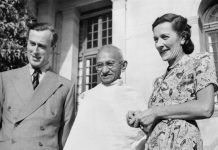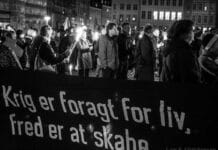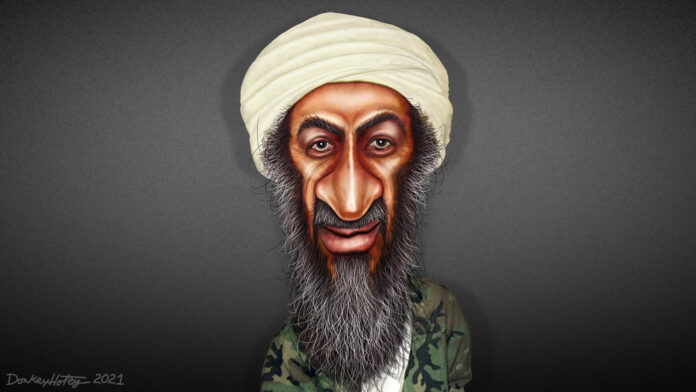
Lederen af Al-Qaida, Osama Bin Laden blev dræbt af amerikanske soldater i Pakistan 2. maj 2011.
Indhold
Se også emnelisterne på Socialistisk Bibliotek:
- 9/11 : Imperialisme og terror efter 11. september
- Konspiration og 11. september
- Politisk Islam – et reaktionært oprør
- Marxism & Terrorism
- Afghanistan – krig og besættelse (kladde)
- Terrorlovgivning, overvågning og retssikkerhed (kladde)
- Tidslinjen 2. maj 2011 om USAs drab på Osama bin Laden.
Leksika mv.
- Leksikon.org: Bin Laden, Osama
- Den Store Danske: Osama bin Laden + al-Qaeda
- FaktaLink: Terrornetværket al-Qaeda
- SourceWatch: Al Qaida
- Wikipedia.dk: Osama bin Laden + Al-Qaeda
- Wikipedia.org: Death of Osama bin Laden + Osama bin Laden + al-Qaeda
Sites
- Information.dk: Tema: Osama bin Laden + al-Qaeda
- The Guardian: Tema: Osama bin Laden + Al-Qaida
Articles
Autonom Infoservice
Osama Bin Laden – fra forbundsfælle til statsfjende nr. 1 (11. maj 2011)
“Den saudiarabiske mangemillionær Osama Bin Laden er ikke altid blevet betragtet som fjende af Vestens politiske magthavere. Igennem mange år støttede CIA ham som en ‘vigtig forbundsfælle’. Her er Osama Bin Ladens historie…”
DIIS – Dansk Institut for Internationale Studier
Splittelsen i global Jihad: Kampen mellem IS og al-Qaeda (pdf). Af Lars Erslev Andersen mfl. (august 2016, 178 s.)
“Bogen har i alt 11 kapitler, som på forskellig vis belyser den globale
jihadismes aktuelle splittelse.”
FaktaLink
Terrornetværket al-Qaeda. Udarbejdet af Malene Fenger-Grøndahl (2011, 26 A-4 sider)
Betalingssite, som er gratis tilgængelig enten på dit lokale bibliotek eller på din hjemme-pc efter tilmelding på biblioteket.
Historisk Tidsskrift
Al-Qaidas styrke og sårbarhed: Salafisme og krigen mod terror (pdf). Af
Lars Erslev Andersen (bind 109, hæfte 1, 2009, s.125-153)
“Som organisation er al-Qaida mest af alt en parasit, der suger blod
fra andres konflikter, det være sig Taliban, Hamas eller de irakiske
oprørere.”
Information
Historiens dyreste menneskejagt. Af Jason Burke (Information.dk, 11. maj 2012). Anmeldelse af Peter Bergen, Manhunt: The Ten-Year Search for bin Laden – from 9/11 to Abbottabad (Crown, 2012)
“Du skal ikke tænde lyset, sagde Osama bin Laden til sin kone Amal. Det var formentligt hans sidste ord, viser ny gennemresearchet bog om den 10 år lange jagt på al-Qaedas leder.”
‘Fjendebillederne passer ikke længere’. Interview med Olivier Roy (8. september 2011)
“I 10 år har Osama bin Laden styret vores verdensbillede, men nu er det slut. Europas førende islamforsker Olivier Roy er overbevist om, at en ny æra er på vej, hvor vi vil indse, at vi siden 2001 har taget fejl på stort set alle punkter: krigen mod terror, frygten for islamismen og ideen om Europas fejlslagne integration.”
Det Ny Clarté
Hvad gør vi med bin Laden?: Antihegemoniske bevægelser og islamisk fundamentalisme. Af Mikkel Bolt (nr.6, februar 2008, s.64-67). Scroll ned. Anmeldelse af Bruce Lawrence (red.): Budskap til verden – Osama Bin Ladens ytringer (L.S.P. Forlag, 2007, 523 s.). “… hvad går hans ideologi ud på, hvilken basis har den og hvordan forholder venstrefløjen sig til den? Udgivelsen af hans ‘samlede værker’ kan være med til at besvare spørgsmålene.”
Socialistisk Information
Hævnfølelsen stopper ikke med Osamas død. Af Farooq Tariq (12. maj 2011)
“De første fire dage efter drabet på Osama Bin Laden er den almindelige reaktion i Pakistan meget blandet. I Punjab hersker der generel sympati for Osama, selv om kun de færreste siger det åbent … [og] til en overraskelse skete der ikke ret meget i Khaiber Pakhtoonkhawa, hvor Osama blev dræbt.”
Solidaritet
Bin Laden vandt i sidste ende (12. september 2021)
“Den saudiske superterrorist fik alle sine ønsker opfyldt – og han kunne ikke have klaret det uden os. Foreløbigt har Osama Bin Laden vundet – men der er stadig mulighed for, at USA kan få det sidste ord, skriver den amerikanske filminstruktør og samfundsaktivist, Michael Moore.”
Canadian Dimension
The assassination Of bin Laden: its use & abuse. By James Petras (May 7, 2011)
“In the face of major strategic losses, as evident in the astonishing assassination of top military officials, Obama had to mount a political spectacle  a ‘military success story’  the killing of unarmed bin Laden, to buoy the spirits of the American public, military and its NATO followers.”
Common Deams
My reaction to Osama bin Laden’s death. By Noam Chomsky (May 7, 2011)
“We might ask ourselves how we would be reacting if Iraqi commandos landed at George W. Bush’s compound, assassinated him, and dumped his body in the Atlantic.”
CounterPunch
The last months of Osama bin Laden. By Patrick Cockburn (May 7, 2012)
“The story behind the tracking down and killing of Osama bin Laden remains a puzzle despite the torrent of documentaries and articles appearing on the anniversary of his death.”
The most cuccessful terrorist organization in history. By Patrick Cockburn (May 3, 2011)
“Al Qaeda aimed to destroy the status quo in the Middle East and it succeeded beyond its wildest dreams.”
The long road to Abbottabad. By Shaukat Qadir (May 2, 2011)
“Many Americans have accused the CIA of training Osama. My view is that the accusation is not merited. However, there is little doubt that he received encouragement, support, funding and even arms for Afghan freedom fighters and that he was a CIA collaborator for some years.”
The Guardian
Osama bin Laden: cold war veteran. By Mark Weisbrot (3 May 2011)
“Al-Qaida’s mastermind knew only too well how to manipulate US foreign policy to make America behave like an imperial tyrant.”
Osama bin Laden: the long hunt. By Jason Burke (2 May 2011)
“The al-Qaida leader evaded intelligence agencies for years, until a complex trail led to a garrison town outside Islamabad.”
Osama bin Laden obituary. By Jason Burke and Lawrence Joffe (2 May 2011)
“Leader of al-Qaida and the mastermind behind the 9/11 terrorist attacks, he became the world’s most wanted man.”
In Defence of Marxism
Great Power arrogance and the murder of Bin Laden. By Alan Woods (5 May 2011)”The past few days have revealed flaw after flaw in the White House reporting of the killing of Bin Laden. The US Government’s message has been full of contradictions from start to finish.”
The assassination of Bin Laden: terrorism and state terrorism. By Alan Woods (3 May 2011)
“For the past decade the world’s media has systematically built up the image of a mythical Beast called al-Qaeda, an ultra-centralised and fanatically disciplined international organization dedicated to the destruction of western civilization. In reality, al-Qaeda was always a small organization with a marginal following in the Islamic world.”
The Independent
Al-Qa’ida’s second act: the full five-part series. By Patrick Cockburn (21 March 2014)
“The aim of the series is to show the extent to which jihadist organisations identical in ideology and methods to Osama bin Laden’s al-Qa’ida have survived, flourished and are now stronger than ever.” Se også serien på Marxistarkiv.se: Andra akten för al-Qaida (pdf)
Was he betrayed? Of course. Pakistan knew Bin Laden’s hiding place all along. By Robert Fisk (3 May 2011)
“I met the man three times and have only one question left unasked: what did he think as he watched those revolutions unfold this year – under the flags of nations rather than Islam, Christians and Muslims together, the kind of people his own al-Qa’ida men were happy to butcher?”
March 2007: Robert Fisk on bin Laden at 50 (May 2, 2011; online at Internet Archive)
“The most wanted man on the planet was 36 when our veteran correspondent met him for the first time in the desert.”
Informed Comment
Top ten myths about Bin Laden’s death. By Juan Cole (05/04/2011)
“New details of the operation against Usama Bin Laden have emerged. Here are the myths that people keep bombarding me with and which are now known to be untrue.”
The Muslim world sounds off on Bin Laden’s demise. By Juan Cole (05/03/2011)
“Usama Bin Laden, a mass killer, passed virtually unmourned from the scene. There were no demonstrations against his killing in the Arab world. A few Taliban protested in Quetta and Afghanistan, as one might expect. Mostly Muslims denounced him and expressed relief he was gone.”
International Viewpoint
9/11, bin Laden, the USA and the Arab uprisings: The perils of people power. By Gilbert Archcar (Issue 440, September 2011)
“The Arab uprisings have shifted hero status from Osama bin Laden to the people, a shift that could backfire on the United States.”
Middle East Report Online
The fateful choice. By the Editors (May 6, 2011 )
“When 19 al-Qaeda hijackers attacked New York and Washington on September 11, 2001, the United States faced a strategic dilemma that was unique in magnitude, but not in kind. The demise of Osama bin Laden almost ten years later underlines the consequences of the US response. ”
Socialist Worker
Bin Laden – from friend to foe of US imperialism. By Ken Olende (Issue 2250, 7 May 2011; online at Internet Archive)
“Ten years ago, Al Qaida could present itself as the only serious response to the power of the West. Thankfully, the situation has changed now. It is the mass uprisings that continue to grow across the Middle East that really threaten imperial control.”
SocialistWorker.org
Assassination nation (May 5, 2011)
“Elizabeth Schulte describes the bone-chilling history of America’s assassins in the aftermath of their latest – but certainly not their first – kill in the Middle East.”
Cheering for war and empire (May 3, 2011)
“The killing of Osama bin Laden will make the world less safe – because it will be used to build support for more violence committed by the U.S. government.”
Stratfor
Why Al Qaeda is unlikely to execute another 9/11. By Scott Stewart (September 1, 2011)
“Our belief is that al Qaeda has been doing its utmost to attack the United States and has not pulled any punches. Because of this, we do not believe it possesses the ability to increase this effort beyond where it was prior to bin Laden’s death.”
Bin Laden’s death and the implications for Jihadism. By Scott Stewart (May 3, 2011)
“In spite of the sense of justice and closure the killing of bin Laden brings, however, his death will likely have very little practical impact on the jihadist movement. More important will be the reaction of the Pakistani government to the operation and the impact it has on U.S.-Pakistani relations.”
Weekly Worker
The prince and the terrorist (Issue 1406, 4 August 2022)
“Yassamine Mather explores the fabulously rich bin Laden family and the links between the Middle East’s efficient royals and Britain’s dignified royals.”
Mirror images of terror. By Eddie Ford (Issue 1363, September 16, 2021)
“Al Qa’eda wanted to provoke, the US neocons wanted to be provoked. The result has been a whole series of failed states.”
Bloody end of US-created monster. By Harley Filben (Issue 864, May 5, 2011)
“Bin Laden became an iconic figure in the resurgence of Islamist reaction, but he was nevertheless in all crucial respects a creation of the United States. It was the US-backed Saudi regime which produced the first stirrings of obsessional religious piety in the young Osama; it was America’s support for jihadist forces against the Soviets in Afghanistan that created an environment in which he could be religiously and politically radicalised.”
Al Quéda: imperialism’s Frankenstein. By Ian Donovan (Issue 481, May 22, 2003)
“Bin Laden’s al Qa’eda is a Frankenstein’s monster created by US imperialism: unemployed ultra-right terrorists, having run out of ‘communist’ targets, are finding new fields of battle in a new jihad against the ‘infidel’ west itself.”
Our own bin Ladens. By Lis Hoskings (Issue 443, August 1, 2002).
“While Al Qaeda and Hamas have featured prominently in the western media, not much is written about western fundamentalists”.
World Socialist Web Site
Washington’s official story unravels, confirming extra-legal execution of Bin Laden. By Barry Grey (5 May 2011)
“It took less than two days for Washington’s official story of the commando raid that killed Osama bin Laden to unravel, revealing amidst the rubble of the initial lies a cold-blooded extra-legal execution.”
The killing of bin Laden and the ‘war on terror’. By Bill Van Auken (3 May 2011)
“Washington and the corporate media have used the killing of Osama bin Laden to launch a strident celebration of US militarism. What is missing from speeches and commentary, however, is any serious assessment of the decade-old ‘global war on terror’.”
The killing of Osama bin Laden. By Patrick Martin and Alex Lantier (2 May 2011)
“Obama’s statement left critical questions unanswered and raised a host of new ones.”
A World to Win
Getting behind Al Qaeda. By Peter Arkell (1 October 2011). Review of Syed Saleem Shahzad, Inside Al Qaeda and the Taliban: Beyond Bin Laden and 9/11 (Pluto Press, 2011) + Mohammad-Mahmoud Ould Mohamedou, Understanding Al Qaeda: Changing War and global Politics (Pluto Press, 2006)
“The origins of these movements, which have attracted thousands of young adherents, their history and the context of their existence are hardly mentioned. Two new books between them go a long way to filling this gap.”
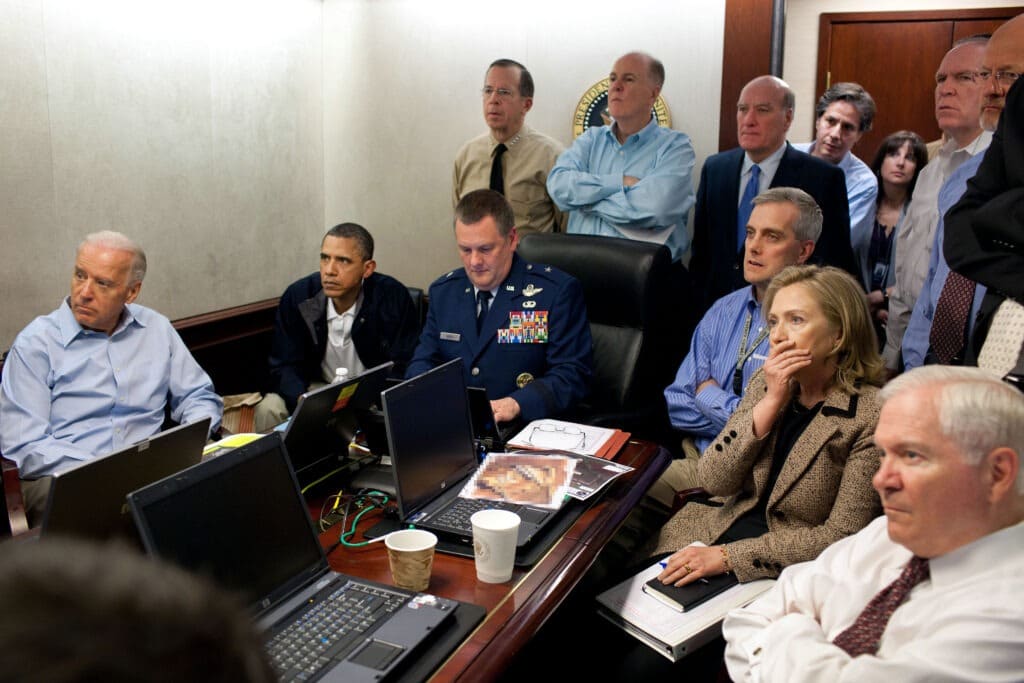
Background, 2001-2010
Bin Laden: the war in his words. By Rowenna Davis (The Guardian, 2 May 2011)
“Osama bin Laden issued a series of opinions and threats after emerging in the mid-1990s.”
The heretic, Part 1-2. By Lawrence Wright (The Guardian/The Observer, 13 July 2008)
“How Al-Qaeda’s mastermind turned his back on terror.”
Al-Qaeda: the second coming. By Jason Burke (The Guardian/The Observer, 11 March 2007)
“This weekend Osama bin Laden turned 50, probably on the wild Pakistan border, while Madrid falls silent today to honour its 2004 bomb victims. But what of al-Qaeda? In a major investigation, an expert on terror reveals it is evolving into a potent new threat.”
What is al-Qaeda? By Jason Burke (The Guardian/The Observer, 13 July 2003)
“In this extract from his new book, Al-Qaeda: Casting a shadow of terror, The Observer’s chief reporter, Jason Burke, looks at the true nature of bin Laden’s organisation and why the west’s misunderstanding of the broad and diverse phenomenon of modern Islamic militancy undermines its response to terrorism.”
Al Qa’eda: Imperialism’s Frankenstein. By Ian Donovan (Weekly Worker, Issue 481, May 22, 2003)
“The origins and history of al Qa’eda put this organisation in a fundamentally different category from even those organisations that have a formally similar ideology, such as Hamas and Hezbollah, that are or have been engaged in these genuine national struggles.”
What is bin Ladenism?: Al Qaeda leader’s letter to Americans. By Bill Vann (World Socialist Web Site, 29 November 2002)
“A recently translated 4,000-word letter purported to be written by Osama bin Laden provides what may be the clearest presentation yet of the utterly reactionary political and social views that underlie his brand of Islamic fundamentalist terrorism.”
Afghanistan, the CIA, bin Laden and the Taliban. By Phil Gasper (International Socialist Review, Issue 20, November.-December 2001)
“Whatever the U.S. government’s current rhetoric about the repressive nature of the Taliban regime, its long history of intervention in the region has been motivated not by concern for democracy or human rights, but by the narrow economic and political interests of the U.S. ruling class …”
How the CIA created Osama bin Laden. By Norm Dixon (Green Left Weekly, Issue 465, 19 September 2001)
“The US government refuses to admit its central role in creating the vicious movement that spawned bin Laden, the Taliban and Islamic fundamentalist terrorists that plague Algeria and Egypt – and perhaps the disaster that befell New York. The mass media has also downplayed the origins of bin Laden and his toxic brand of Islamic fundamentalism.”
The bin Laden videotape: the reactionary politics of terrorism (World Socialist Web Site, 18 December 2001)
“The recently released videotape in which Osama bin Laden gloats over the World Trade Center atrocity and avows responsibility for it provides a graphic demonstration of the political bankruptcy of terrorism.”
The making of the world’s most wanted man, Part 1-2. By Jason Burke (The Guardian/The Observer, 28 October 2001)
“What drove a rich Saudi boy to become a terrorist mastermind? After months of interviews, and gathering startling new testimony from al-Qaeda associates and enemies around the world, Afghanistan specialist Jason Burke sifts fact from rumour to provide the fullest account yet of the life of Osama bin Laden.”
Osama Bin Laden: How the U.S. helped midwife a terrorist. By Ahmed Rashid (Greenspun.com, 2001)
An excerpt from Rashid’s book Taliban: Militant Islam, Oil and Fundamentalism in Central Asia (Yale University Press, 2001)
Bøger/Books
List of books about Al-Qaeda (Wikipedia.org)
Stjernestatus i frit fald. Af Andrew Anthony (Information.dk, 23. april 2016). “Seymours Hershs teorier om drabet på bin Laden og krigen i Syrien mangler overbevisningskraft.” Anmeldelse af Seymour Hersh: The Killing of Osama bin Laden (Verso, 2016, 144 p.). Kun online for abonnenter; se anmeldelse på The Guardian (18 April 2016).
På guidet tur ind i hovedet på al-Qaeda. Af Jason Burke (Information, 12. februar 2011)
“Al-Qaedas hårde kerne og bin Ladens person er stadig de afgørende spillere i den globale islamismes terrornetværk, vurderer den ansete jihad-forsker Peter L. Bergen, der i en ny bog [The Longest War, Simon & Schuster, 2011] giver overraskende nye indsigter i virkelighedsbilledet og arbejdsformen hos det liberale demokratis mest uforsonlige fjender.”
Komplottet mod Amerika. Af Tony Worm (Information.dk, 2. maj 2008)
“Tilfældigheder, rivalisering og sort uheld banede vejen for al-Qaidas angreb på USA, godt hjulpet på vej af Osama bin Laden og en generel værdikonflikt mellem Vesten og radikale muslimer, skriver Lawrence Wright i sin underholdende og tankevækkende Al-Qaida – Vejen til 11. september (People’s Press, 2008).”
The Rise and Fall of Osama bin Laden – how the son of a brickie became the leader of al-Qaida. By Jason Burke (The Guardian, 6 September 2021). Review Peter Bergen’s book (Simon and Schuster, 2021, 416 p.)
“He draws on a wealth of first-hand reporting over 25 years, hundreds of interviews and thousands of documents for this new work.”
The ultimate AfPak reading list. By Peter Bergen (Foreign Policy, Seprember 8, 2009)
“On the topic to significant reporting on everything from the Soviet invasion of Afghanistan to al Qaeda’s media strategy.”
Cyber-Jihad. By Charles Glass (London Review of Books, Vol.28, No.5, 9 March 2006)
Review article of four books about bin Laden and al-Qaida.
The Crusader: Why we must take Osama bin Laden’s writings seriously. By Khaled Abou El Fadl (Boston Review, March-April 2006). Review of Messages to the World: The Statements of Osama bin Laden, edited by Bruce Lawrence (Verso, 2005)
“Reading this book is essential if we are to seriously appraise the effectiveness of our counterterrorism policies, understand our enemy, and appreciate the historical dimensions of the conflict with what is described as Islamic terrorism.”
Bin Laden’s script: ghost-written in the West. By Brendan O’Neill (Spiked, 13 December 2005)
“One thing is clear from the new book Messages to the World: The Statements of Osama bin Laden – the al-Qaeda leader doesn’t have an original thought in his head.”
Beware the holy war. By Peter Bergen (The Nation, June 20, 2005)
“The Power of Nightmares, a three-hour BBC documentary directed by Adam Curtis, is arguably the most important film about the “war on terrorism” since the events of September 11.” See also PeterBergen.com
Al-Qaeda and those who will come after. By Cathy Nugent (Solidarity, 3/64, 6 January 2005). Review of Jason Burke, Al-Qaeda: the true story of Radical Islam (Penguin, 2004)
“Despite its tabloidesque sub-title, Burke’s book is an extremely lucid, balanced and useful account. It is especially useful because it brings together summaries of most of the events, myriad roots of, and religious and political background to the rise of Al-Qaeda and groups like it.”
Osama bin Laden overalt. Af Rune Lykkeberg (Information.dk, 26. oktober 2001). Anmeldelse af Roland Jacquard, I Osama bin Ladens navn (Per Kofod, 2001)
“Ifølge en ny bog om Osama bin Laden skulle de Olympiske Lege i Sidney have været kanoneret i gang med et brag af et saboteret atomkraftværk.”
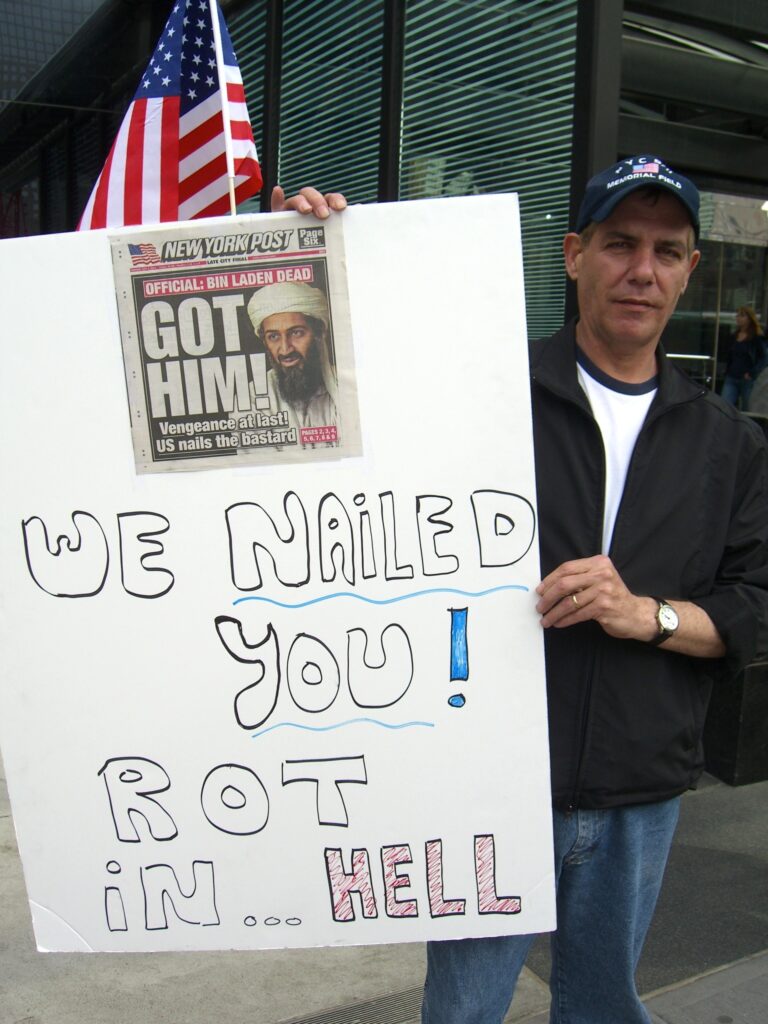
Se flere eksempler:
Aviser hylder Obama efter bin Ladens død. Af Niels Holst (Politikken, )
Danske og internationale aviser glæder sig over, at USA fik ram på Osama bin Laden.
















